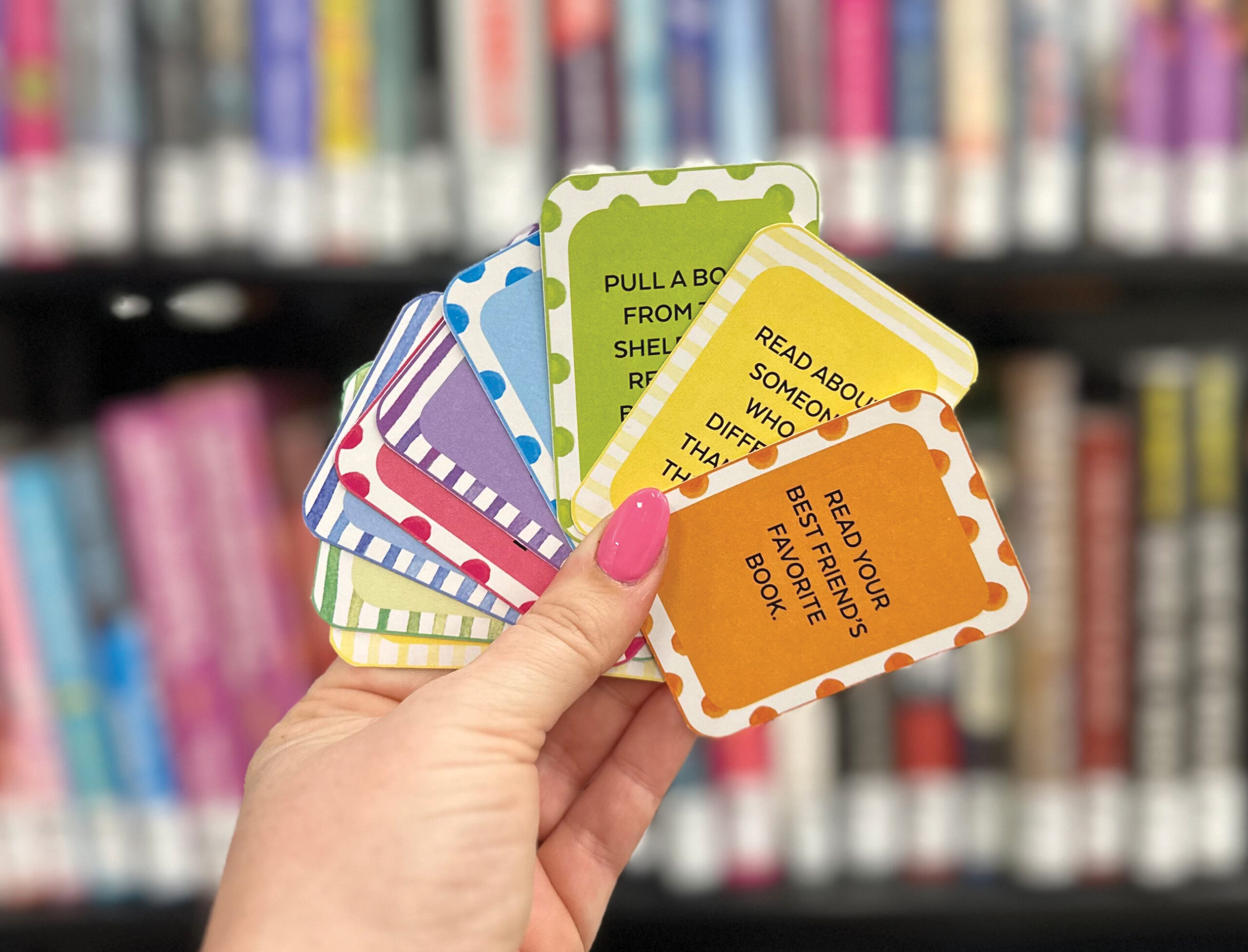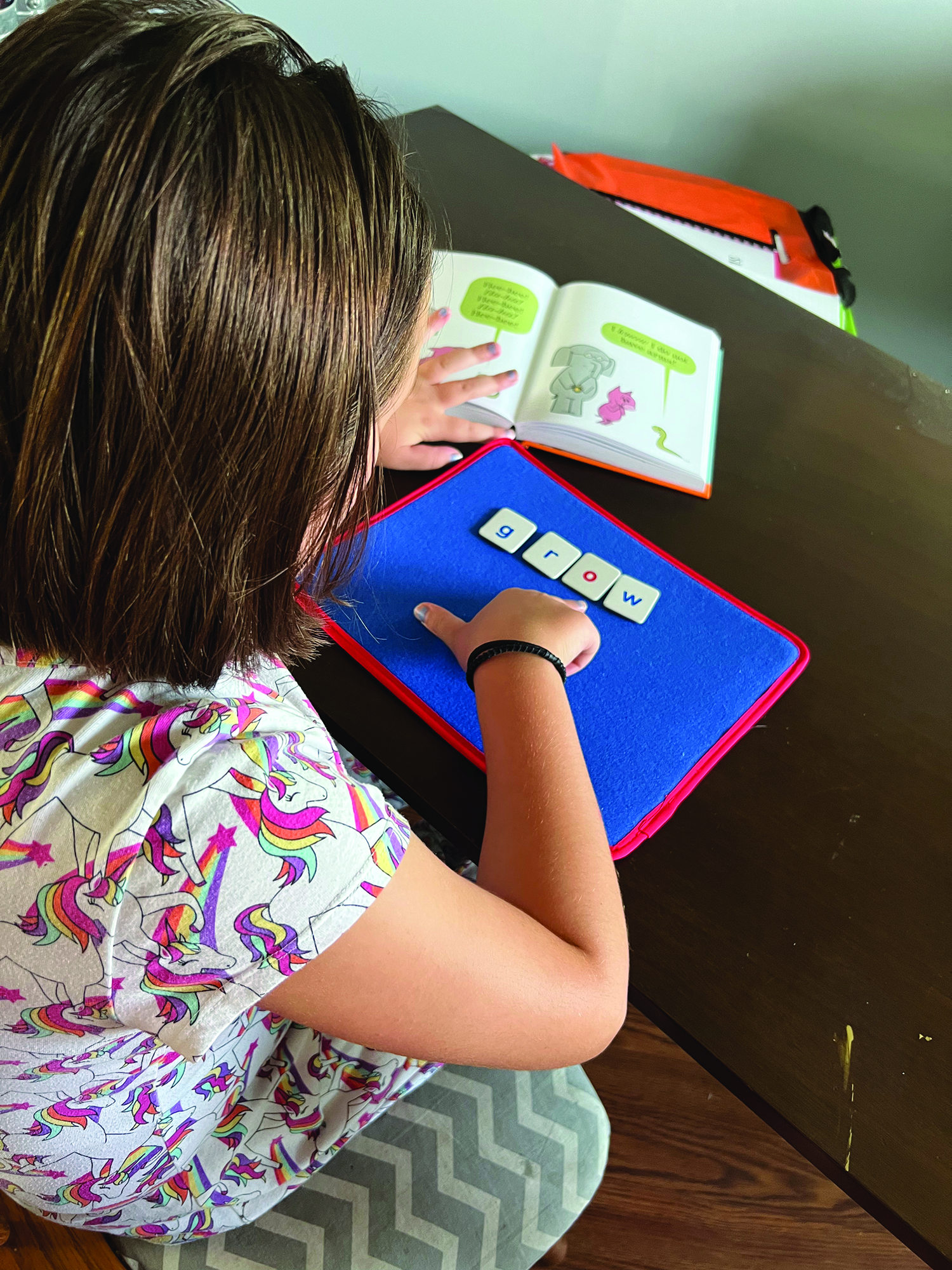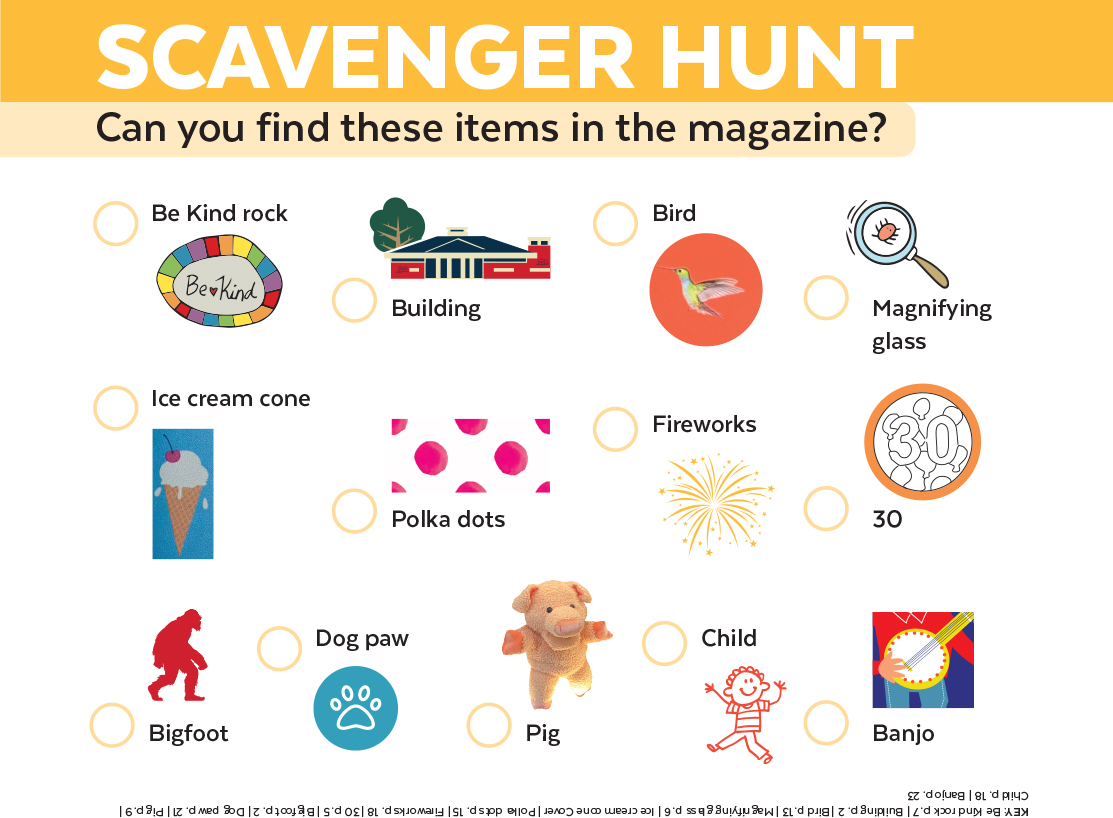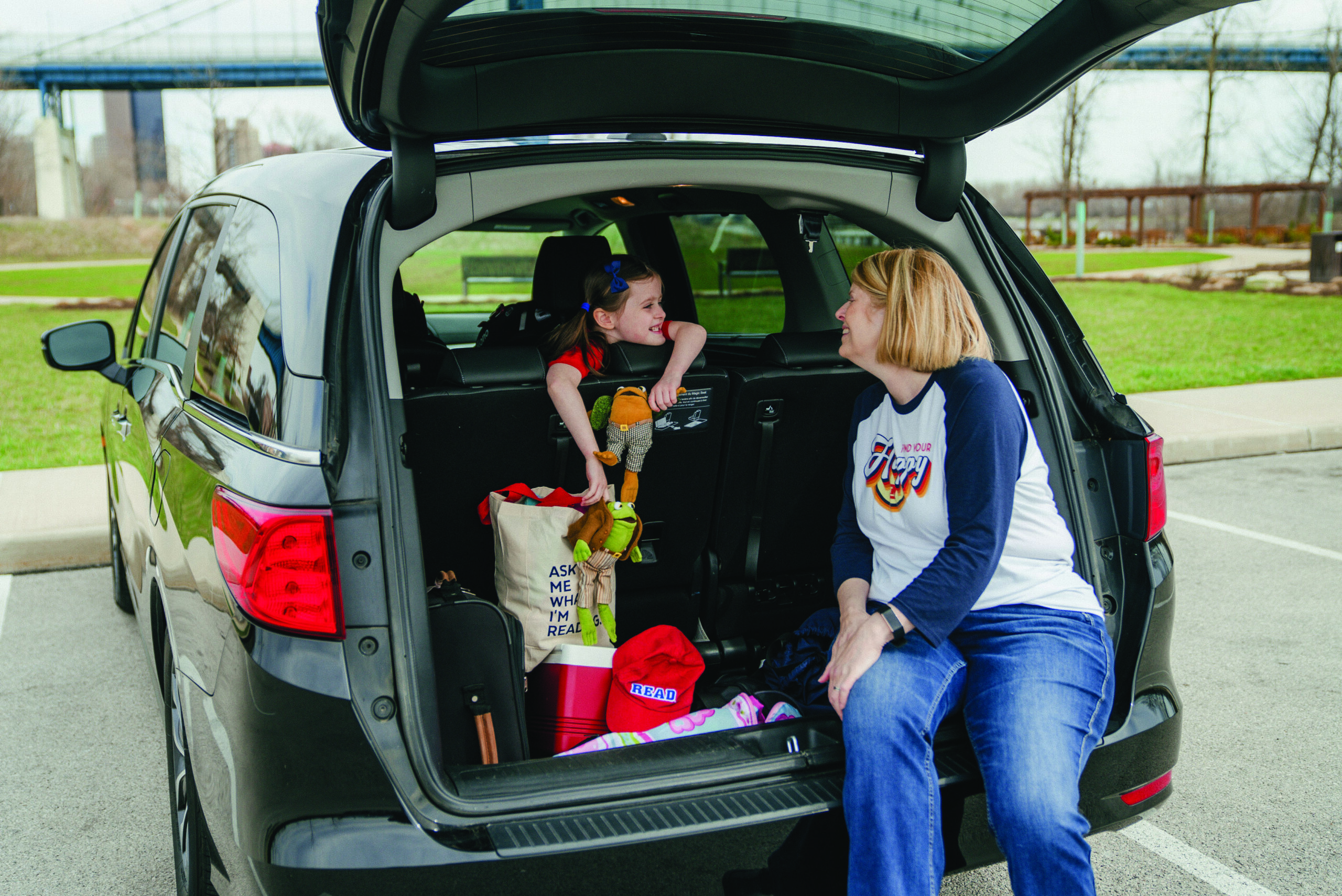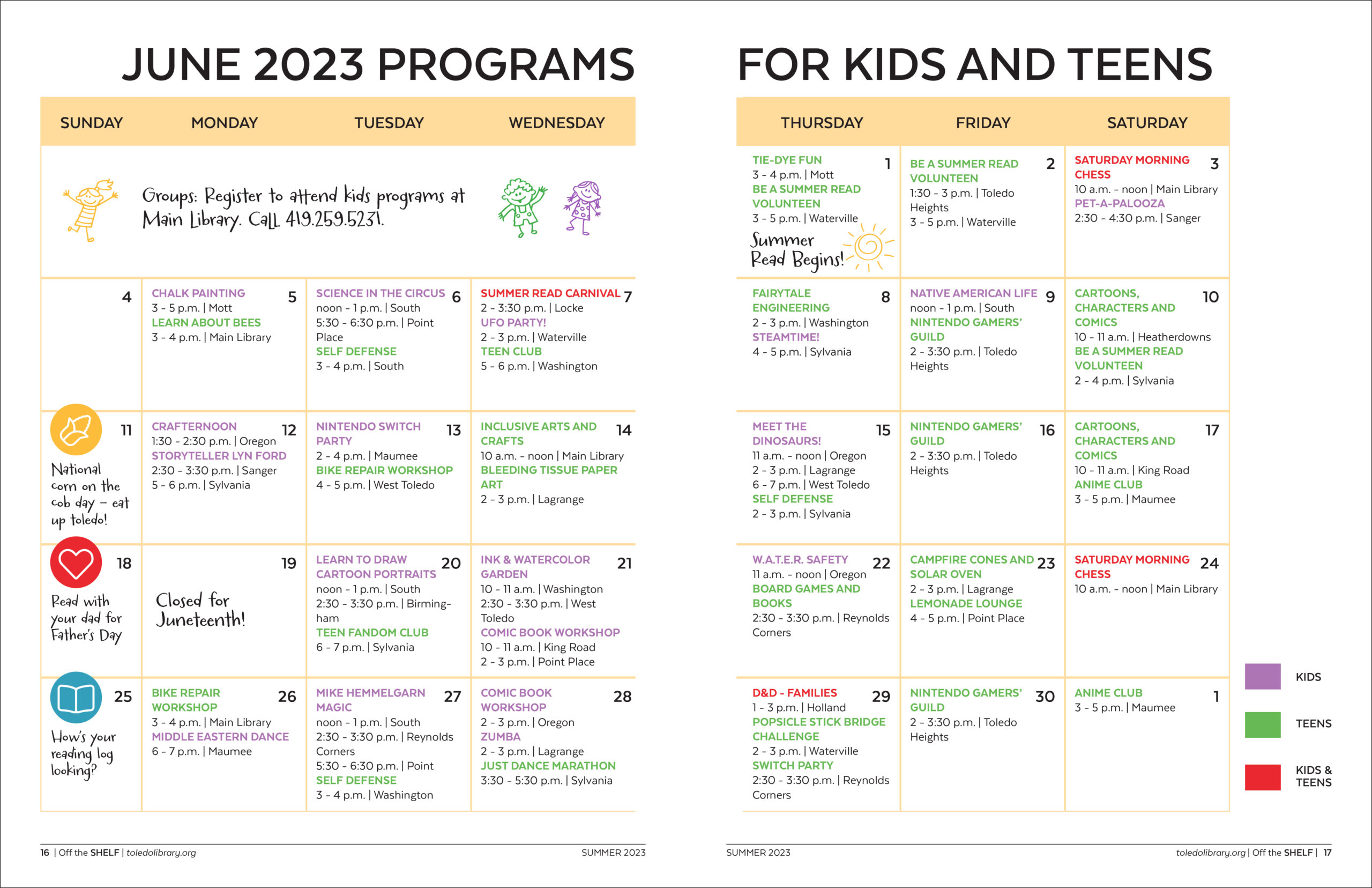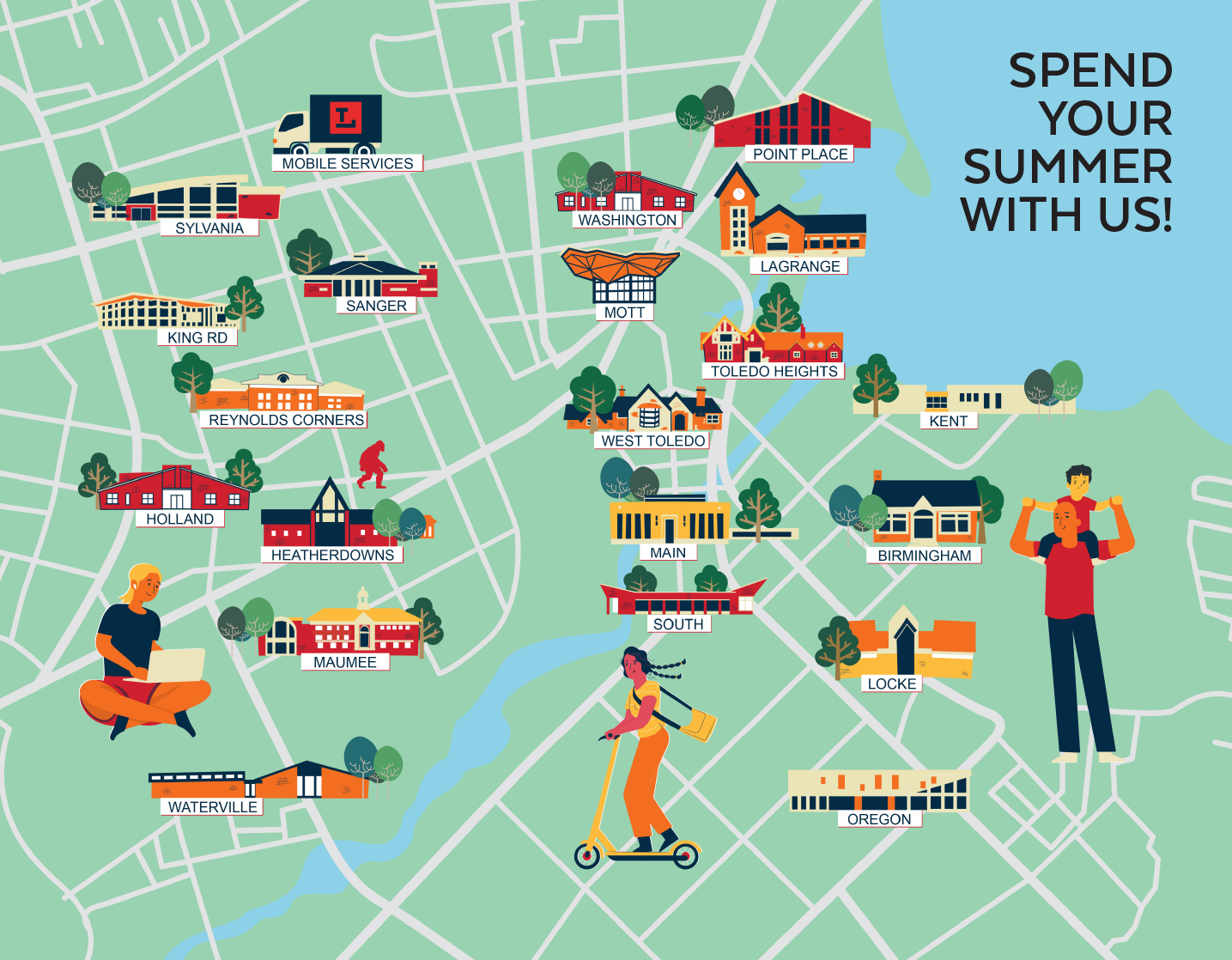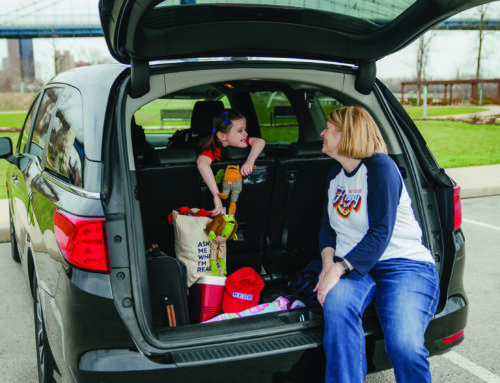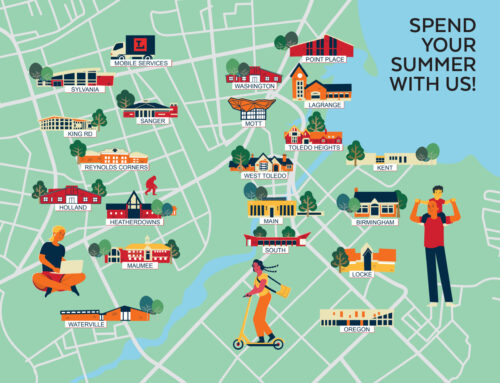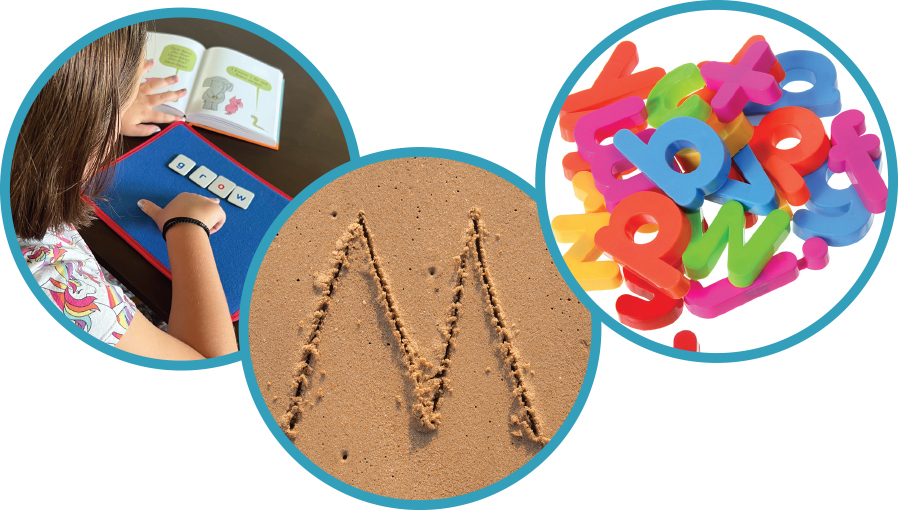
SUMMER READING HELP
By Kate McGowan, K-3 Literacy Specialist
There is a lot of conversation right now in Ohio and across the nation about what is the best way to teach children to read.
There’s a body of scientific research about how kids learn to read. The research shows there are important skills that all kids need to learn to become good readers.
The two main skills are:
- Decoding (also called phonics, or sounding out words)
- Language comprehension
It’s important to know that reading is not a natural skill; it must be taught, and learning is hard work! Parents and caregivers are children’s first teachers, so here are some ways you can support your developing reader:
Help children with decoding
Decoding is the skill of breaking apart words into sounds and syllables, then using those sounds to form words.
- Give your child two words and ask if those words rhyme (cat + bat = yes, bat + ball = no).
- Think of a word; can they break it into each individual sound? Or give your child the individual sounds of a simple word. Can they put the sounds together to make the word?
- Think of words that start or end with a specific sound.
- Take turns changing letters/sounds (map, cap, can, car, cart, part) to make a word chain. How long can you make your word chain?
- Make the letter sounds as you point to letters. “M” says mmm. Trace the letter in a shallow dish of sand, sugar, or flour, making the letter sounds.
Help children with language comprehension
Language comprehension is the ability to understand spoken language. Children build their bank of words from birth by listening and observing the world around them. They use what they know about the world to make connections and understand what they read.
Talk to your children about your day together. Go for a walk and talk about what you see. Take them with you during the day, discuss what you are doing and why.
Read with your children often. Ask them about what is happening in the book, how it makes them feel, and what might happen next.
Give your child an active role in choosing books. Relate the books to things your child already knows.
Talk with your child about everything. Help them make sense of the world and expand their vocabulary by playing, singing, and writing together.
Storytimes are a great way to grow your child’s language comprehension while having fun. See the summer schedule below and visit us soon!
You can also join the Library’s Ready to Read specialists for a special summer offering, Helping your K-3 Reader. Participating caregivers will receive a Ready to Read K-3 toolkit filled with materials and activities to help strengthen reading skills. Each session is the same content, so you just need to attend one. You’re welcome to bring your children along, but the focus is on helping parents, and your child does not need to attend.
- (F) June 9 | Sanger
11 a.m. – noon - (Tu) June 27 | Point Place
2 – 3 p.m. - (M) July 24 | Main Library
11 a.m. – noon - (F) Aug. 11 | Reynolds Corners
2 – 3 p.m. - (M) Aug. 14 | Holland
11 a.m. – noon
Registration is recommended, but not required, at the QR code. Or contact the Ready to Read team to schedule an individual session.
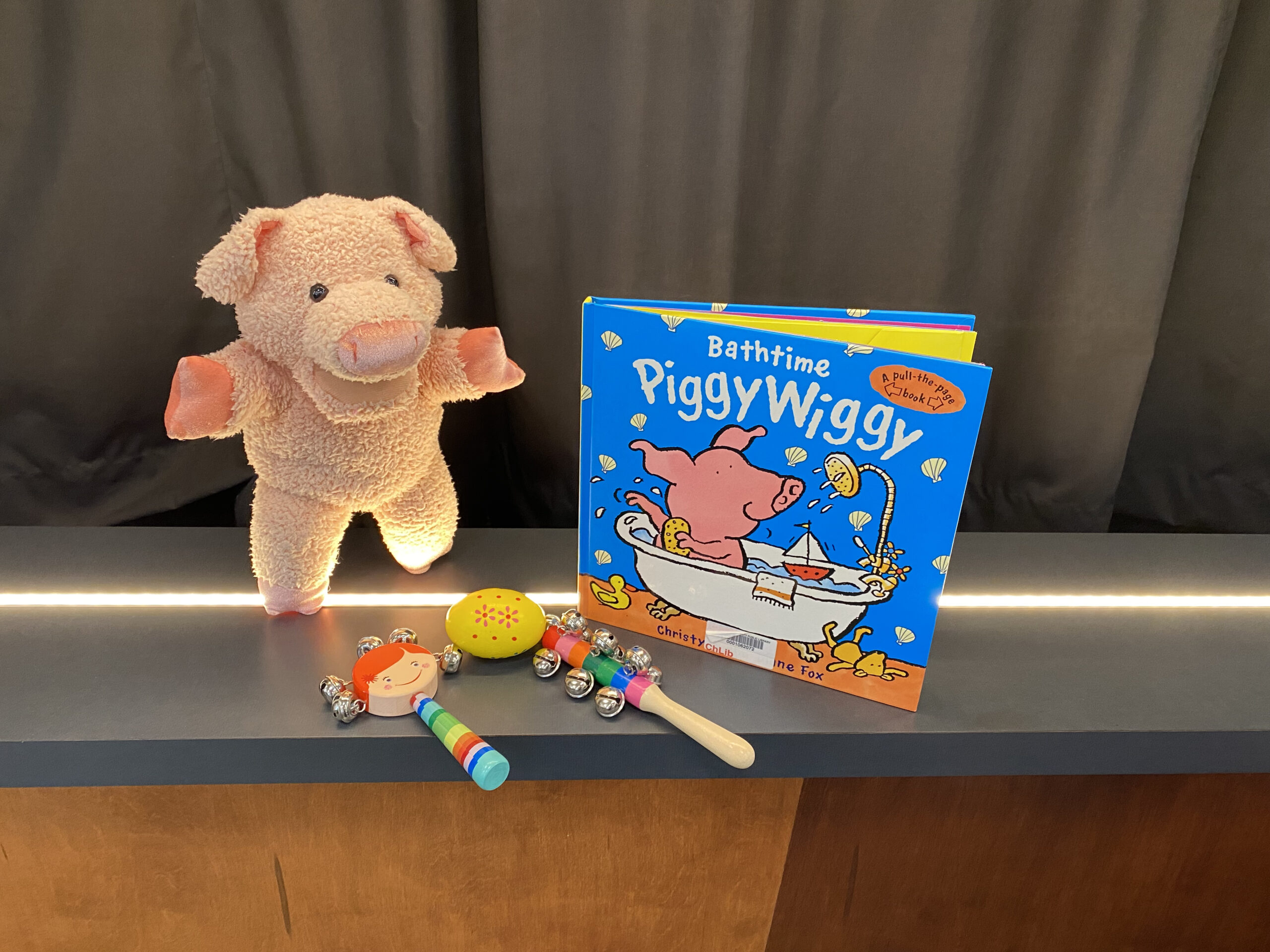
JUNE/JULY STORYTIMES
The more words children hear and learn, the easier it is for them to make connections as they learn to read. Library Storytimes are a fun way to help children get ready to read.
Babytime, 0-18 months | Toddler Storytime, 18-36 months
Preschool Storytime, 3–5 years | Family Storytime, 2–5 years
HOLLAND
Toddler Storytime | (Tu) 11 a.m.
Preschool Storytime | (Th) 11 a.m.
KING ROAD
Babytime | (Tu) 10 a.m.
Toddler Storytime | (Tu) 10:45 a.m. and 11:30 a.m. (reg. needed)
Family Storytime | (W) 2 p.m.
MAIN-CHILDREN’S LIBRARY
Preschool Learn and Play | (F) 10 a.m.
Family Storytime | (M) 10 a.m.
MAUMEE
Babytime | (Tu) 10 a.m.
Toddler Storytime | (Tu) 11 a.m.
Preschool Storytime | (Th) 10 a.m.
MOTT
Preschool Storytime | (Th) 10 a.m.
OREGON
Babytime | (Th) 10 a.m.
Toddler Storytime | (W) 10 a.m.
Family Storytime | (Tu) 6:30 p.m. and (W) 2 p.m.
POINT PLACE
Babytime | (F) 9:45 a.m.
Toddler Storytime | (F) 10:30 a.m.
Family Storytime | (Th) 10:30 a.m.
SANGER
Babytime | (Tu) 10 a.m.
Toddler Storytime | (Tu) 11 a.m.
Preschool Storytime | (Th) 10:30 a.m.
SYLVANIA
Babytime | (W) 10:30 a.m.
Toddler Storytime | (W) 11:30 a.m.
Preschool Storytime | (Tu) 2 p.m.
Family Storytime | (Tu) 10:30 a.m.
WASHINGTON
Family Storytime | (Th) 6:30 p.m.
WATERVILLE
Babytime | (Th) 11 a.m.
Toddler Storytime | (Th) 10 a.m. and (W) 10 a.m.
Preschool Storytime | (Tu) 10 a.m.
Family Storytime | (Tu) 11 a.m.

